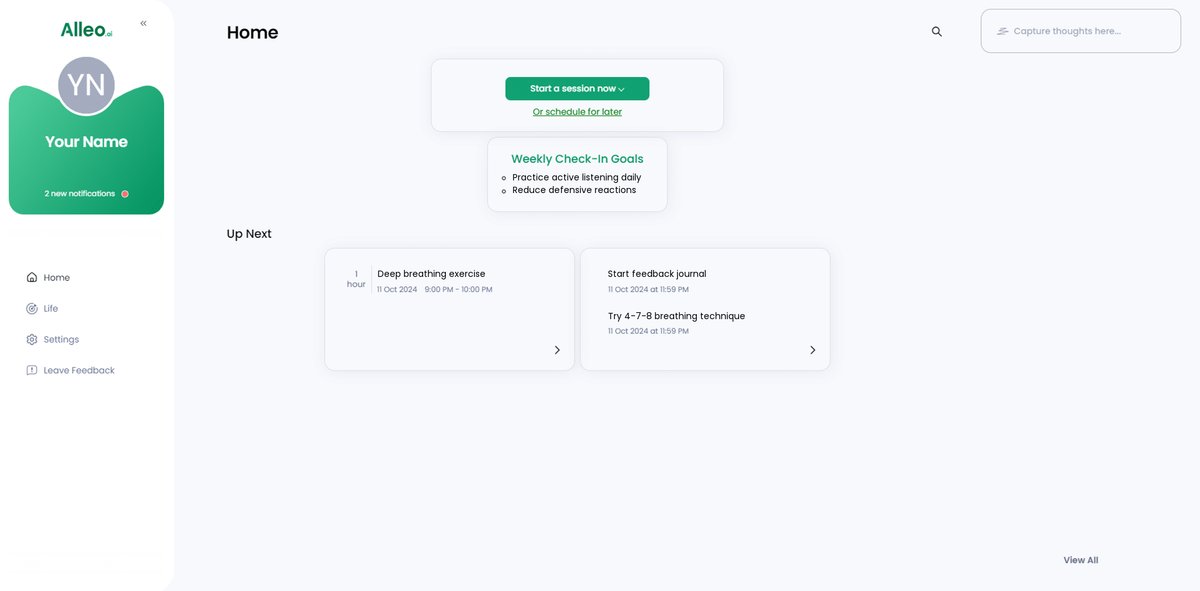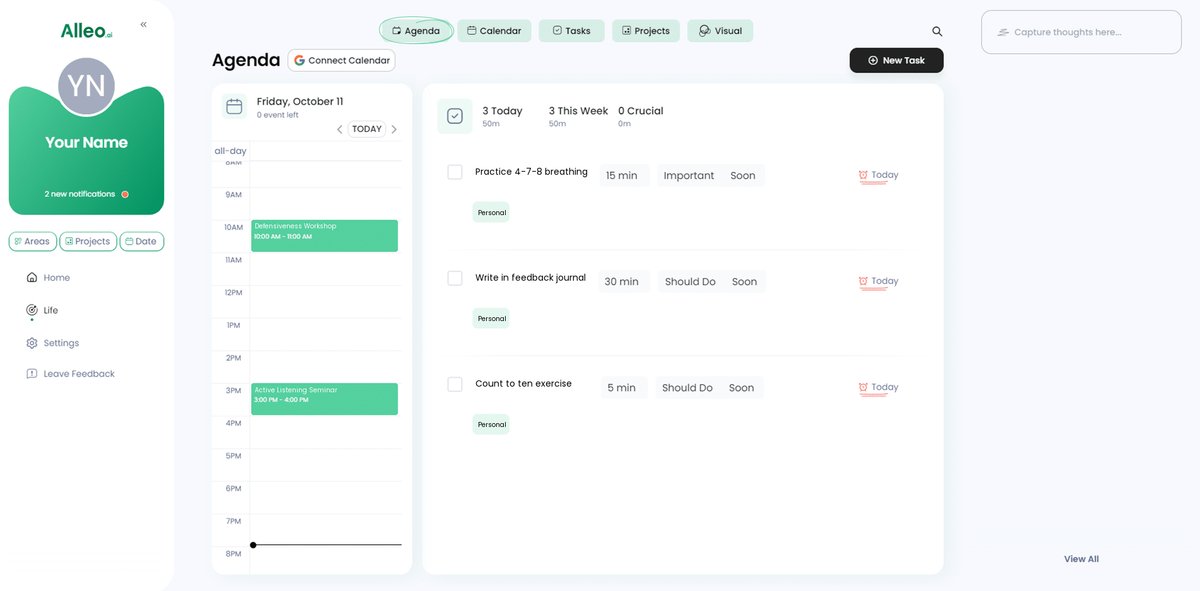How to Stop Being Overly Defensive: Master Everyday Conversations with Confidence
Are you constantly feeling on edge, defending your position even on trivial matters? Learning to stop being overly defensive can greatly improve your interpersonal relationships.
As a life coach, I’ve helped many young professionals navigate these challenges. It’s common to feel like you’re operating at “120” all the time, which can hinder your emotional intelligence and self-awareness in communication.
In this article, you’ll discover practical strategies to stop being overly defensive in everyday conversations. These methods will help you manage stress, improve your interactions, and develop active listening skills. We’ll explore assertive communication strategies and techniques for managing criticism constructively.
Let’s dive in and explore ways to overcome defensiveness and build self-confidence in social interactions.

The Widespread Impact of Constant Defensiveness
Constant defensiveness isn’t just annoying—it’s exhausting. It strains your relationships and can even lead to a toxic work environment. Learning to stop being overly defensive is crucial for improving emotional intelligence and interpersonal conflict resolution.
In my experience, many clients initially struggle with feeling constantly on edge. It’s like walking on eggshells, always ready to defend yourself, even over trivial matters. Developing self-awareness in communication can help overcome this tendency.
This emotional state can seriously affect your well-being. Imagine the cumulative stress of always being on high alert. Mindfulness in conversations and cognitive behavioral therapy for defensiveness can be effective tools to manage this stress.
Moreover, this defensiveness often makes you less approachable. Colleagues may start avoiding you, which further isolates you and exacerbates the problem. To stop being overly defensive, focus on building self-confidence in social interactions and practicing assertive communication strategies.

Transforming Conversations: Key Strategies to Stop Being Overly Defensive
Overcoming defensiveness requires a few key steps. Here are the main areas to focus on to make progress and stop being overly defensive.
- Practice Active Listening Without Interrupting: Engage fully in conversations by listening and responding thoughtfully, enhancing your active listening skills.
- Take Deep Breaths to Calm Your Nervous System: Use breathing techniques to manage stress and stay composed, incorporating mindfulness in conversations.
- Pause Before Responding to Gather Thoughts: Give yourself a moment to think before speaking, improving self-awareness in communication.
- Reframe Criticism as Feedback for Growth: See criticism as an opportunity to improve, not a personal attack, managing criticism constructively.
Let’s dive in to explore these emotional intelligence techniques and assertive communication strategies!
1: Practice active listening without interrupting
Active listening can transform your interactions and reduce defensiveness, helping you stop being overly defensive in conversations.
Actionable Steps:
- Maintain eye contact: Make a conscious effort to maintain eye contact during conversations to show engagement and respect. Aim for at least 70% of the conversation, demonstrating self-awareness in communication.
- Paraphrase and reflect: Repeat what the other person said in your own words to confirm understanding. Practice paraphrasing at least once in every conversation to enhance your active listening skills.
- Use non-verbal cues: Nod and use facial expressions to show that you are actively listening. Incorporate at least two non-verbal cues in each interaction, improving your emotional intelligence techniques.
Explanation:
These steps matter because they show you value the other person’s perspective, reducing the likelihood of defensive reactions. They also help you stay calm and focused, which is crucial to stop being overly defensive.
According to a Yale article, curiosity and listening are more beneficial than criticism or contempt. For more insights, check out this Yale resource.
Key benefits of active listening:
- Builds trust and rapport, aiding in interpersonal conflict resolution
- Reduces misunderstandings, helping to manage criticism constructively
- Encourages open communication, supporting assertive communication strategies
Implementing these strategies will improve your conversations, making them more constructive and less stressful, ultimately helping you stop being overly defensive in social interactions.

2: Take deep breaths to calm your nervous system
Deep breathing helps you manage stress and stay composed during tense conversations, which is essential to stop being overly defensive.
Actionable Steps:
- Practice the 4-7-8 Breathing Technique: Inhale for 4 seconds, hold for 7 seconds, and exhale for 8 seconds. Do this three times daily to enhance your emotional intelligence techniques.
- Perform Grounding Exercises: Identify five things you can see, four you can touch, three you can hear, two you can smell, and one you can taste. Use this mindfulness in conversations exercise whenever you feel defensive.
- Engage in Progressive Muscle Relaxation: Tense and then relax each muscle group for five minutes every day to improve self-awareness in communication.
Explanation:
These steps help you stay calm and maintain control over your reactions. Deep breathing techniques are essential in managing stress and promoting emotional regulation, which can help stop being overly defensive.
According to a reputable source, managing stress is crucial for emotional well-being. Implementing these strategies reduces the likelihood of defensive outbursts and improves your interactions, supporting assertive communication strategies.
Incorporating these techniques will help you feel more at ease and less reactive in your daily conversations, aiding in managing criticism constructively and overcoming insecurity in relationships.

3: Pause before responding to gather thoughts
Pausing before responding gives you time to think and reduces impulsive reactions, helping you stop being overly defensive.
Actionable Steps:
- Count to ten: Silently count to ten before responding, allowing yourself time to gather your thoughts and practice emotional intelligence techniques.
- Ask clarifying questions: Pose a question to better understand the other person’s point before you respond, enhancing your active listening skills.
- Use a calm tone: Lower your voice to a calm, steady tone before speaking to maintain composure and demonstrate self-awareness in communication.
Explanation:
These steps help you respond thoughtfully instead of reacting defensively. This technique aligns with the need for calm and constructive communication, incorporating assertive communication strategies.
According to a reputable source, managing stress is crucial for emotional well-being. Implementing these strategies can lead to more meaningful and less stressful conversations, helping you stop being overly defensive.
Benefits of pausing before responding:
- Improves emotional regulation and helps in managing criticism constructively
- Enhances decision-making and mindfulness in conversations
- Fosters better relationships and aids in interpersonal conflict resolution
Taking these pauses can transform your interactions, improve your professional relationships, and build self-confidence in social interactions.

4: Reframe criticism as feedback for growth
Reframing criticism as feedback for growth is vital to reducing defensive reactions and fostering personal development. This approach can help you stop being overly defensive and improve your emotional intelligence techniques.
Actionable Steps:
- Adopt a growth mindset: View feedback as an opportunity to improve rather than a personal attack. Reflect on one piece of feedback per week to identify growth areas and enhance self-awareness in communication.
- Seek constructive criticism: Actively ask for feedback from colleagues and mentors to enhance your skills and stop being overly defensive. Request feedback at least once a month to improve your active listening skills.
- Keep a feedback journal: Document feedback received and your reflections on it to track progress. Write in your journal after each significant feedback session, focusing on managing criticism constructively.
Explanation:
These steps are essential because they help you see criticism in a positive light, promoting continuous improvement. Embracing a growth mindset can significantly reduce defensiveness and enhance your interpersonal conflict resolution skills.
According to a LinkedIn post, constructive criticism is crucial for personal and professional development. Implementing these strategies can make criticism feel empowering rather than threatening, helping you stop being overly defensive.
Ways to reframe criticism positively:
- Focus on specific behaviors, not personal traits
- Identify actionable improvements
- Express gratitude for the feedback
By viewing criticism as a tool for growth, you’ll enhance your interactions and achieve a more balanced emotional state, effectively learning to stop being overly defensive and improving your assertive communication strategies.

Partner with Alleo to Manage Defensiveness
We’ve explored ways to stop being overly defensive in daily conversations. Did you know you can work with Alleo to make this journey easier and faster, improving your emotional intelligence techniques?
Alleo, an AI life coach, provides affordable, tailored coaching support to help you develop active listening skills and enhance self-awareness in communication. It’s like having a personal coach for managing criticism constructively!
Sign up for a free 14-day trial—no credit card needed.
Set up an account and create a personalized plan. Alleo’s coach will help you overcome challenges, such as being overly defensive, and track your progress in building self-confidence in social interactions.
Get reminders and follow-ups via text and push notifications to support your journey in overcoming insecurity in relationships.
Ready to get started for free? Let me show you how to stop being overly defensive and improve your interpersonal conflict resolution skills!
Step 1: Log In or Sign Up
To begin your journey to reduce defensiveness, log in to your Alleo account or create a new one to access personalized coaching support.

Step 2: Choose “Improving overall well-being and life satisfaction” as your goal
Select “Improving overall well-being and life satisfaction” as your primary focus to address the root causes of defensiveness and create a more balanced, fulfilling life.

Step 3: Select “Personal” as Your Focus Area
Choose the “Personal” life area in Alleo to address defensiveness and improve your interpersonal interactions. This selection allows you to concentrate on developing emotional regulation skills, enhancing your active listening abilities, and reframing criticism positively – all crucial aspects for reducing defensiveness in your daily conversations.

Step 4: Starting a Coaching Session
Begin your journey with Alleo by scheduling an intake session to discuss your defensiveness challenges and create a personalized plan for overcoming them.

Step 5: Viewing and Managing Goals After the Session
After your coaching session, open the Alleo app to find your discussed goals displayed on the home page, where you can easily track and manage your progress towards reducing defensiveness.

Step 6: Adding events to your calendar or app
Use Alleo’s calendar and task features to schedule and track your progress in implementing defensive communication strategies, such as active listening exercises or daily deep breathing sessions, helping you stay accountable and measure your improvement over time.

Bringing It All Together
Shifting your mindset and behavior to stop being overly defensive takes time, but the benefits are worth it.
Remember, you’re not alone in feeling defensive. Developing emotional intelligence techniques can help you manage this reaction.
With the strategies we’ve discussed—active listening skills, deep breathing, pausing, and reframing criticism—you can transform your interactions and reduce stress. These assertive communication strategies are key to managing criticism constructively.
Start implementing these steps today to stop being overly defensive. You’ll notice a change in how you handle conversations, improving your self-awareness in communication.
For additional support in overcoming insecurity in relationships, consider trying Alleo.
As your AI life coach, Alleo can guide you through these techniques and keep you on track, helping you build self-confidence in social interactions.
Sign up for a free 14-day trial and take the first step towards a calmer, more composed you, mastering mindfulness in conversations and interpersonal conflict resolution.